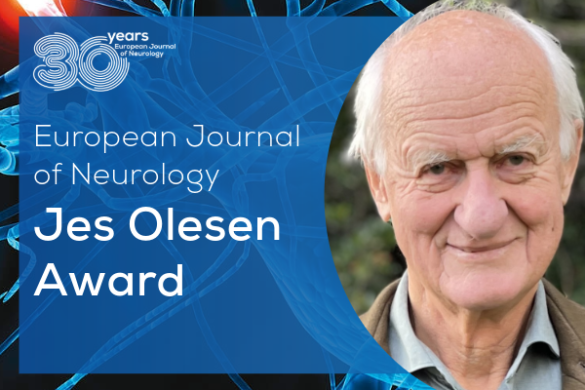by Gabriele Prandin
This Special Session on Cognitive impairment beyond neurodegenerative and vascular dementias was organised in collaboration with the European Journal of Neurology on four different aspects of cognitive impairment associated with non-degenerative and non-vascular neurological disorders: epilepsy, covered by Marijke Miatton (Belgium), multiple sclerosis by Iris Katharina Penner (Switzerland), COVID-19 by François Chollet (France), and migraine by Isabel Martins (Portugal), who also chaired the session.
The first talk, from Marijke Miatton on cognition and epilepsy, gave an overview of the prevalence of disturbances in epileptic patients, the type of neuropsychological deficits that are due to a lobar epilepsy (mostly the temporal lobe epilepsy). She went into detail about the effect of antiseizure drugs and different types of surgical intervention on cognition. For both, a pre-intervention neuropsychological evaluation was recommended. Finally, she showed data on the efficacy of neurostimulation therapy and promising data on rehabilitation.
In the second talk, Iris Katharina Penner dealt with cognition in multiple sclerosis (MS). The presentation started with evidence of cognitive impairment in patients with low EDSS score, and paid attention to the effect of this aspect on everyday activity (i.e., work, driving) and in disability progression. In the second part Penner evaluated the possible role of drugs (DMT, symptomatics) and non-pharmacological intervention in sparing cognitive functions.
François Chollet started his presentation on the effect of COVID-19 on cognition with epidemiological data, then diagnostic criteria and risk factors were presented for neurological forms of COVID-19 during the acute phase and long COVID-19. The talk continued showing confounding and limiting factors of some studies, such as the absence of a characteristic neuropsychological profile, and immeasurable invalidity compared to poverty of objective deficits.
Closing out the session Isabel Martins spoke about the effect of migraine on cognitive impairment. In particular she analysed the cognitive effects during acute migraine attack and the interictal period, looking at the differences in migrane with and without aura. The last part of the presentation focused on the long-term effects on cognition and the possible effect of migraine in developing dementia.












